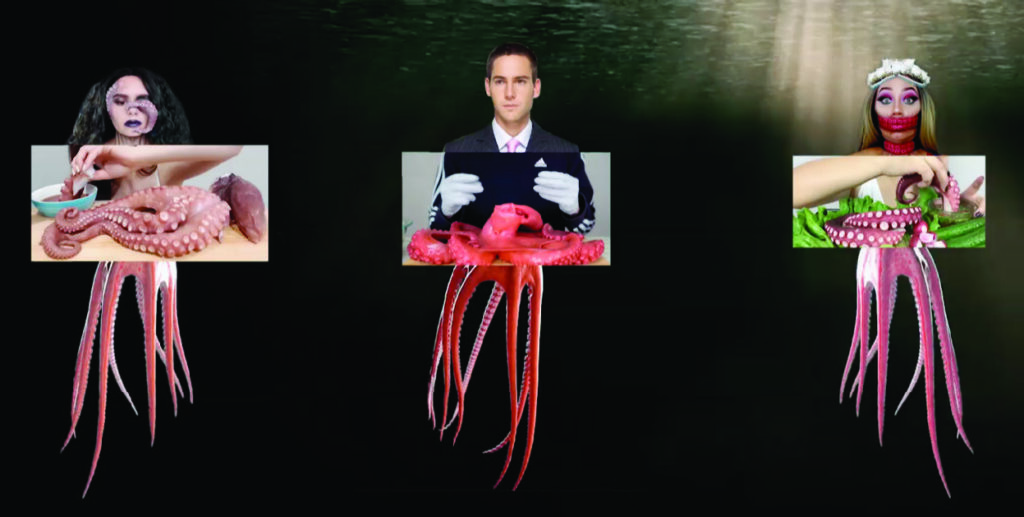
NEOZOON, Cephalization, 2019 (video still)
Octopuses get strung up on cloth-lines to dry out in the sun. they are being beaten, kneaded, massaged and wrung, to soften their meat. they are being cut up, eaten whole, alive, cooked, deep-fried in batter or raw. they are being tossed alive in boiling water. they are even cut up and eaten alive, wiggling on plates after they have been carved up to be savored fresh and juicy.
The ways octopuses feature in how we make them into culinary delicacies are as horrendous, tasteless and objectifying as the jokes nEoZoon has their interspecies avatars recite. the jokes reveal the
low regard we hold octopuses in, uncover the rawness with which we respond to their suffering, how numb we have become towards the objectification of others, occasion for little more than nasty laughter, how we numb ourselves against their suffering. naturally it is women that are ridiculed among (and used to ridicule) octopuses and vice versa.
But the jokes’ robotic delivery equally reveals just how mechanical these responses are, and letting the laughter get stuck in one’s throat. Half human-half octopus avatars, happily devouring themselves, kneading, dipping, curling away at their extremities.
tell me, o octopus, I begs
Cephalization, Ogden Nash
Is those things arms, or is they legs? I marvel at thee, octopus;
If I were thou, I’d call me us.
The avatars’ collective recital of the poem interrupts, if for a short but significant moment, the mechanical flow of movements, jokes and water gurgling in the background. Like an awakening, it raises doubt, if for an instant, in the necessity of the cogs’ turning, and raising the possibility that things might be different. tell me, is it ourself we are consuming, o sister octopus?